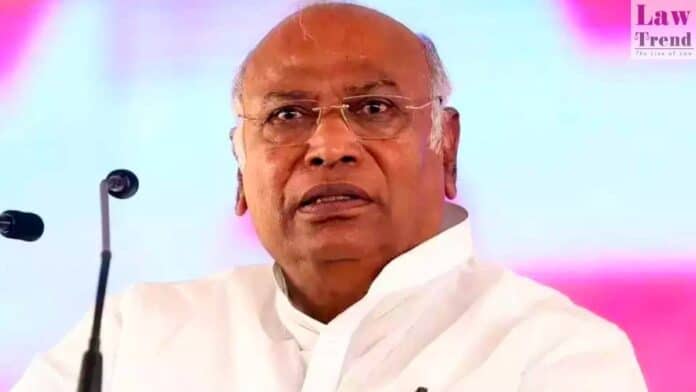The Supreme Court today issued a stay on further investigations into a First Information Report (FIR) lodged in Karnataka against an individual who allegedly used derogatory remarks against the President of the All India Congress Committee (AICC), Mallikarjun Kharge, referring to him as “Ayogya” (worthless or rascal). The case, which had previously been considered under various sections of the Indian Penal Code (IPC) pertaining to promoting enmity and inciting violence, was brought into question in the Supreme Court under a Special Leave Petition (SLP).
The Bench, composed of Justices MM Sundresh and Justice Pankaj Mithal, granted an interim order amidst deliberations over the Karnataka High Court’s previous decision. The High Court had dismissed charges under the Scheduled Caste and Scheduled Tribe (Prevention of Atrocities) Act, 1989, while allowing the continuation of investigations under IPC Sections 153-A, 153-B, and 505(2).
This controversy stems from a speech delivered in Siravara, Raichur, where the accused, Mithun Shet, allegedly made remarks that were interpreted as caste-based insults aimed at stirring hatred. The subsequent legal proceedings have centered around the interpretation and implications of the term “Ayogya,” which the High Court deemed equivalent to “rascal,” warranting further investigation under charges of inciting disharmony.
Senior Advocate Aruna Shyam, representing the petitioner, argued that the interpretation of “Ayogya” by the High Court was overly narrow and failed to consider alternative meanings like “worthless,” which may not necessarily incite violence or hatred. The SLP challenged the appropriateness of applying Sections 153-A, 153-B, and 505 of the IPC, suggesting that the usage of “Ayogya” in the speech did not meet the criteria necessary for these charges.
The petition also raised critical questions about the application of legal standards, referring to Supreme Court precedents which stipulate that for speech to be punishable, it must be directly capable of inciting violence or leading to public disorder. The petitioner further questioned whether the followers of the Congress Party constitute a “group or community” as envisioned under Section 153-A of the IPC, thereby challenging the legal basis for the High Court’s decision.




